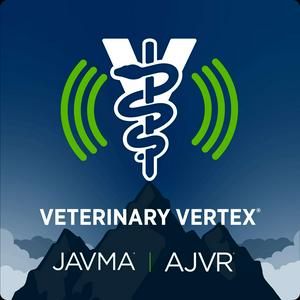185 episodios
- Send a text
Half of the dogs in a massive nationwide study are getting supplements—yet few products face drug-level scrutiny before they hit pet store shelves. We sit down with researchers Drs. Janice O'Brien and Audrey Ruple from the Dog Aging Project to unpack what owners actually give, why they reach for these products, and how the evidence stacks up against bold marketing claims.
We dig into the big three—omega-3 fatty acids, glucosamine and chondroitin, and probiotics—and map how usage shifts across life stages from puppyhood to senior years. You’ll hear why joint supplements surge with age, why probiotics peak early, and why omega-3s stay steady across all groups. We also explore reactive versus preventive habits, revealing that dogs perceived as less healthy are more likely to receive supplements, hinting at care that often starts after problems emerge.
From agility dogs to couch companions, we surface patterns you can act on, plus the surprising products owners report using, like bee pollen and dental powders. Our guests break down the current science: a 2022 meta-analysis showing no clear benefit for glucosamine and chondroitin, the context-dependent promise of omega-3s, and the strain-specific realities of probiotics. Along the way, we share practical scripts for better clinic conversations, from asking the right history questions to explaining evidence quality without jargon, and we set realistic expectations so supplements support—not replace—proven treatments.
If you’re a veterinarian, you’ll walk away with a clearer framework for counseling clients and documenting use. If you’re a pet owner, you’ll get simple steps to choose products wisely, track real outcomes, and talk with your veterinarian before you buy. Subscribe, share this episode with a fellow dog lover, and leave a quick review to help more listeners find evidence-based guidance on canine health.
AJVR article: https://doi.org/10.2460/ajvr.25.06.0217
INTERESTED IN SUBMITTING YOUR MANUSCRIPT TO JAVMA ® OR AJVR ® ?
JAVMA ® : https://avma.org/JAVMAAuthors
AJVR ® : https://avma.org/AJVRAuthors
FOLLOW US:
JAVMA ® :
Facebook: Journal of the American Veterinary Medical Association - JAVMA | Facebook
Instagram: JAVMA (@avma_javma) • Instagram photos and videos
Twitter: JAVMA (@AVMAJAVMA) / Twitter
AJVR ® :
Facebook: American Journal of Veterinary Research - AJVR | Facebook
Instagram: AJVR (@ajvroa) • Instagram photos and videos
Twitter: AJVR (@AJVROA) / Twitter
JAVMA ® and AJVR ® LinkedIn: https://linkedin.com/company/avma-journals - Send a text
A shaggy coat and a creaky stride don’t have to signal the end of the road. We unpack new primary-care evidence on pituitary pars intermedia dysfunction (PPID) showing that diagnosed horses can live as long as matched controls, even as they experience more medical events along the way. That insight changes how we talk with owners: from doom to diligence, and from a single prescription to a complete, daily management plan.
We sit down with researchers Drs. Emma Stapley and François René-Bertin to break down what PPID really is—and why it’s not the same as “Cushing’s” in people or dogs. You’ll hear how they built a robust control group by matching age, breed type, and even owner to cut through referral bias. We dig into the laminitis connection, the role of insulin dysregulation, and why the oral sugar test is your best entry point. From there, we move into practical monitoring: post-meal insulin checks, seasonally aware testing, and how owners who give pergolide daily often catch subtle changes earlier.
Treatment is more than pergolide. We map the full-care toolkit: low-NSC diets tailored to the individual horse, ration balancers that avoid unnecessary starch, exercise that builds muscle without overloading feet, and farriery that supports comfort and function. Body condition is a quiet lever with outsized effects; holding a steady, moderate score can rival medication in shaping outcomes. We also surface often-missed comorbidities—slow wound healing, hyperinsulinemia-associated laminitis, and dental issues like EOTRH—and explore emerging questions around calcium and vitamin D that may link neuroendocrine change to oral health.
If you work with senior horses, manage a barn, or simply love a hairy retiree who still wants a job, this conversation gives you a clear, evidence-based playbook. Subscribe, share the episode with your barn friends, and leave a review to help more horse owners find science-backed guidance. What PPID myth have you struggled to debunk? Tell us after you listen.
JAVMA article: https://doi.org/10.2460/javma.25.08.0533
INTERESTED IN SUBMITTING YOUR MANUSCRIPT TO JAVMA ® OR AJVR ® ?
JAVMA ® : https://avma.org/JAVMAAuthors
AJVR ® : https://avma.org/AJVRAuthors
FOLLOW US:
JAVMA ® :
Facebook: Journal of the American Veterinary Medical Association - JAVMA | Facebook
Instagram: JAVMA (@avma_javma) • Instagram photos and videos
Twitter: JAVMA (@AVMAJAVMA) / Twitter
AJVR ® :
Facebook: American Journal of Veterinary Research - AJVR | Facebook
Instagram: AJVR (@ajvroa) • Instagram photos and videos
Twitter: AJVR (@AJVROA) / Twitter
JAVMA ® and AJVR ® LinkedIn: https://linkedin.com/company/avma-journals - Send a text
What happens when the people closest to the patient lead the science that shapes their care? We sit down with guest editors Erik Fausak and Dr. Adesola Odunayo to unpack the first-ever JAVMA supplemental issue authored by credentialed veterinary technicians—and why it matters for outcomes, team culture, and the future of evidence-based practice.
Across anesthesia, radiology, ECC, and surgery, credentialed veterinary technicians make thousands of critical decisions every day. That frontline view generates smart research questions: how to secure IV catheters, how long to hang fluid bags, which scrub protocols lower infection risk, and how to standardize monitoring that prevents complications. We explore how credentialed veterinary technician-led studies, from narrative and scoping reviews to original research, turn bedside insight into better protocols that any clinic can adopt.
We also address barriers that hold technicians back: limited mentorship, scarce funding, minimal institutional credit, and no protected time to write. Erik and Adesola share workable fixes—establishing research mentors, pooling multi-site data to power studies, rewarding publications for techs, and using social media to both crowdsource questions and fight misinformation. The payoff is real: higher job satisfaction, stronger retention, and a team-wide shift from “evidence-based medicine” to “evidence-based practice,” where everyone participates in decisions that improve care.
If you want a stronger hospital culture, safer anesthesia, cleaner lines, and a clearer career path for your credentialed technicians, this conversation offers a roadmap. Read the credentialed veterinary technician-led supplement, share it with your team, and start a study that answers a question from your treatment floor. Enjoyed the episode? Subscribe, leave a review, and tell us which credentialed veterinary technician-led research your clinic should tackle next.
JAVMA supplemental issue: https://doi.org/10.2460/javma.263.s2.s4
INTERESTED IN SUBMITTING YOUR MANUSCRIPT TO JAVMA ® OR AJVR ® ?
JAVMA ® : https://avma.org/JAVMAAuthors
AJVR ® : https://avma.org/AJVRAuthors
FOLLOW US:
JAVMA ® :
Facebook: Journal of the American Veterinary Medical Association - JAVMA | Facebook
Instagram: JAVMA (@avma_javma) • Instagram photos and videos
Twitter: JAVMA (@AVMAJAVMA) / Twitter
AJVR ® :
Facebook: American Journal of Veterinary Research - AJVR | Facebook
Instagram: AJVR (@ajvroa) • Instagram photos and videos
Twitter: AJVR (@AJVROA) / Twitter
JAVMA ® and AJVR ® LinkedIn: https://linkedin.com/company/avma-journals - Send a text
Your heart sinks when a dog’s CT shows a primary liver tumor plus extra lesions. Ours used to as well—until we dug into data showing how often those additional masses are actually benign. In this conversation with surgical oncologists Drs. Samuel Burkhardt and Hunter Piegols, we rethink what “multiple hepatic lesions” really means, and how that shift can change everything from pre-op counseling to what you sample in the OR.
We walk through their study design—primary liver tumors paired with additional lesions verified by surgical exploration and histopathology—and why imaging alone couldn’t separate benign from malignant with confidence. You’ll hear practical guidance on interpreting CT findings without leaping to metastasis, framing owner conversations to avoid a falsely negative outlook, and planning targeted biopsies that refine staging and inform follow-up. We also tackle the language problem: nodule versus mass. Without common definitions, clinicians and researchers risk misreading severity and muddying the literature. The case for cross-disciplinary standards and working groups is compelling.
Looking ahead, we explore tools that could improve preoperative decisions: contrast-enhanced ultrasound, more rigorous imaging criteria adapted from human medicine, and the promise of liquid biopsy and biomarkers to flag “bad actor” hepatocellular carcinomas. We discuss sample-size limits in veterinary studies, the value of multi-institutional collaboration, and related puzzles like what a solitary pulmonary nodule really means for prognosis. Along the way, you’ll pick up succinct surgical maxims, practical tips for histopath submission, and a reminder that small resets outside the clinic help us think clearly when cases get complex.
If this conversation helps you reframe your next liver case, share it with a colleague, subscribe for more evidence-based episodes, and leave a review so others can find the show.
JAVMA article: https://doi.org/10.2460/javma.25.07.0514
INTERESTED IN SUBMITTING YOUR MANUSCRIPT TO JAVMA ® OR AJVR ® ?
JAVMA ® : https://avma.org/JAVMAAuthors
AJVR ® : https://avma.org/AJVRAuthors
FOLLOW US:
JAVMA ® :
Facebook: Journal of the American Veterinary Medical Association - JAVMA | Facebook
Instagram: JAVMA (@avma_javma) • Instagram photos and videos
Twitter: JAVMA (@AVMAJAVMA) / Twitter
AJVR ® :
Facebook: American Journal of Veterinary Research - AJVR | Facebook
Instagram: AJVR (@ajvroa) • Instagram photos and videos
Twitter: AJVR (@AJVROA) / Twitter
JAVMA ® and AJVR ® LinkedIn: https://linkedin.com/company/avma-journals - Send a text
What if one of the most common vaccine rituals in small animal practice doesn’t help patients at all? We sit down with researchers Jane Sagaser and Dr. Rachael Kreisler to unpack a randomized clinical trial that tested whether replacing the needle after drawing up a canine subcutaneous vaccine improves comfort or outcomes. The result is a clear, practice-changing insight: no clinical benefit for dogs, and no reliable advantage detected by blinded injectors.
Together we explore how the team measured what matters—objective heart rate changes as a proxy for stress and a holistic, blinded reaction score at the moment of injection—while keeping the study grounded in real clinic workflows. We put long-standing beliefs under the microscope, tracing how dramatic but poorly documented images of bent needle tips shaped habits, and we connect the findings to human vaccine guidance that does not recommend needle swapping after vial puncture. Jane and Rachael also point out when replacement still makes sense: visible damage, contamination, or drops that compromise safety.
The conversation widens into sustainability, cost, and sharps volume, showing how small changes in protocol can reduce waste and needle-stick risk without sacrificing patient care. A surprising pattern pops up when the rabies vaccine is given second in the right rear limb, prompting new questions about site sensitivity, formulation effects, and the potential influence of temperature or tactile desensitization. We get candid about measurement challenges—from blood pressure cuffs to wearable heart rate sensors—and highlight the need for better species-ready tools to capture continuous physiologic data.
If you value evidence over habit, this is a guide to updating your standard operating procedures with confidence. You’ll hear practical strategies for critical appraisal, ideas for simple clinic-based studies, and a call to test assumptions rather than inherit them. Subscribe, share with your team, and leave a review to help more veterinary professionals find data that improves patient comfort, safety, and sustainability.
JAVMA article: https://doi.org/10.2460/javma.25.10.0661
INTERESTED IN SUBMITTING YOUR MANUSCRIPT TO JAVMA ® OR AJVR ® ?
JAVMA ® : https://avma.org/JAVMAAuthors
AJVR ® : https://avma.org/AJVRAuthors
FOLLOW US:
JAVMA ® :
Facebook: Journal of the American Veterinary Medical Association - JAVMA | Facebook
Instagram: JAVMA (@avma_javma) • Instagram photos and videos
Twitter: JAVMA (@AVMAJAVMA) / Twitter
AJVR ® :
Facebook: American Journal of Veterinary Research - AJVR | Facebook
Instagram: AJVR (@ajvroa) • Instagram photos and videos
Twitter: AJVR (@AJVROA) / Twitter
JAVMA ® and AJVR ® LinkedIn: https://linkedin.com/company/avma-journals
Más podcasts de Educación
Podcasts a la moda de Educación
Acerca de Veterinary Vertex
Veterinary Vertex is a weekly podcast that takes you behind the scenes of the clinical and research discoveries published in the Journal of the American Veterinary Medical Association (JAVMA) and the American Journal of Veterinary Research (AJVR). Tune in to learn about cutting-edge veterinary research and gain in-depth insights you won’t find anywhere else. Come away with knowledge you can put to use in your own practice – along with a healthy dose of inspiration to remind you what you love about veterinary medicine.
Sitio web del podcastEscucha Veterinary Vertex, Diego Ruzzarin y muchos más podcasts de todo el mundo con la aplicación de radio.net

Descarga la app gratuita: radio.net
- Añadir radios y podcasts a favoritos
- Transmisión por Wi-Fi y Bluetooth
- Carplay & Android Auto compatible
- Muchas otras funciones de la app
Descarga la app gratuita: radio.net
- Añadir radios y podcasts a favoritos
- Transmisión por Wi-Fi y Bluetooth
- Carplay & Android Auto compatible
- Muchas otras funciones de la app


Veterinary Vertex
Escanea el código,
Descarga la app,
Escucha.
Descarga la app,
Escucha.

































